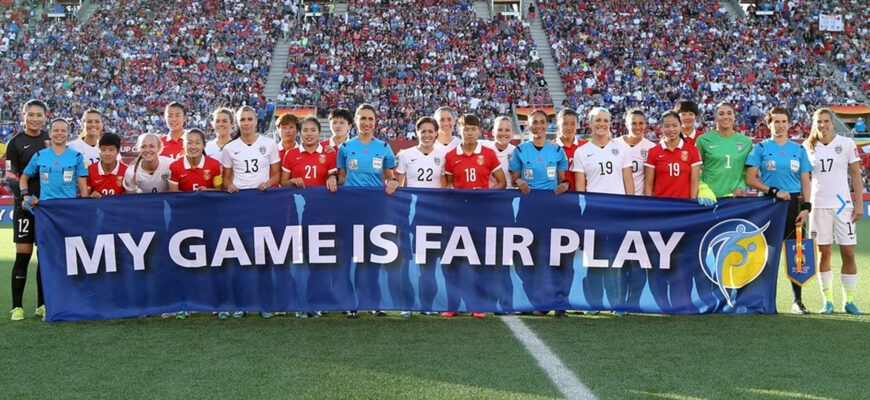“`html
In the intricate world of European football finance, Portugal stands out. Not for a revolutionary new revenue stream, but for clinging to a practice largely abandoned by its major counterparts: the individual sale of broadcast rights. For years, each club in the Primeira Liga has negotiated its own deals, creating a significant financial disparity between the traditional powerhouses and the rest. This model is now under pressure, with a government mandate pushing for centralization, but the path forward is proving anything but smooth.
The Problem: A Widening Gap in the Beautiful Game
The individual rights model has fostered an environment where the gap between the richest clubs (primarily Benfica, FC Porto, and Sporting CP) and the smaller teams is vast. Reports indicate a staggering difference – the top earner can receive approximately 15 times more in broadcast revenue than the lowest. Compare this to leagues like England`s Premier League, where the ratio is closer to 1.3 times, Germany`s Bundesliga (around 2.5 times), or Spain`s La Liga and Italy`s Serie A (both about 3 times). This financial chasm directly impacts competitiveness on the pitch, making it incredibly difficult for smaller clubs to invest in infrastructure, youth academies, or player talent, perpetuating a predictable league structure. It`s less of a league, more of a hierarchy with a very steep financial cliff.
The Mandate: A Government Push for Modernization
Recognizing this issue, the Portuguese government stepped in. In February 2021, a decree-law was approved, mandating the centralized sale of I and II Liga broadcast rights starting from the 2028/29 season. The clock is ticking: the Portuguese Football Federation (FPF) and the Portuguese Professional Football League (LPFP) were tasked with presenting a unified proposal for the centralized model by the end of the 2025/26 season. This proposal then requires approval from the Competition Authority by June 30, 2026. To manage this process, a dedicated entity, Liga Centralização, was established in September 2021. The intention was clear: drag Portuguese football into the 21st century`s broadcast economics.
The Money Question: What`s the Liga Worth?
Estimating the value of centralized rights is a critical, and contentious, step. Studies commissioned by the Liga Portugal and FPF have placed the potential value of the Primeira Liga between 275 and 325 million euros annually. This is an ambitious target, significantly higher than the reported 185 million euros currently generated by individual deals. However, potential broadcasters are understandably skeptical. The director-general of DAZN in Portugal, for instance, questioned the valuation premises, suggesting the 300 million euro figure is “at least 100 million euros above the current value” and highlights that operators already struggle to monetize the existing 185 million euro payout. It seems the Liga might be valuing its product with the optimism of a fan during derby week.
The Distribution Dilemma: Sharing the Pie (or Not)
Perhaps the most significant hurdle is agreeing on how the centralized revenue will be distributed among the clubs. While the stated goal is a more equal sharing to boost overall league competitiveness, the larger clubs, particularly Benfica, are vocal about receiving a share commensurate with their size, sporting success, and social impact. The Liga`s assertion that no club will lose money under the centralized model, while admirable, lacks a clear explanation of *how* this will be achieved if the total value doesn`t increase dramatically or if the distribution heavily favors the top clubs. It`s a tricky negotiation: convince the powerful few to take a smaller *percentage* while promising them more *absolute* money, a promise tied to a valuation some find unrealistic.
One proposed distribution model involves splitting the revenue: half based on criteria shared by all clubs (perhaps equally or with minimal variation) and the other half based on performance, social footprint, or audience numbers. The Liga is optimistic that international rights sales will contribute significantly to reaching the ambitious 300 million euro target, potentially making the pie large enough to satisfy everyone, or at least lessen the pain for the big clubs who might see their *relative* share decrease.
Current Roadblocks: A Process on Hold?
The inherent tensions in this process recently boiled over. Benfica formally requested the *immediate suspension* of the entire centralization process, citing unspecified concerns. This move, coming just a year before the deadline for a final proposal, is a major setback for a process already perceived as delayed. FC Porto quickly reacted, urging the Liga to maintain a firm stance and continue the process. This public disagreement underscores the deep divisions and challenges in reaching the consensus necessary to move forward. It appears that unifying the clubs might be a more challenging feat than achieving a fair distribution formula.
The Stakes: Competitiveness and the Future
Should the FPF and LPFP fail to agree on a model, or if their proposal is rejected by the Competition Authority, the responsibility to create a distribution model will fall to the government. This adds another layer of uncertainty to a process already fraught with difficulty.
The stakes are high. Successful centralization, coupled with a reasonably equitable distribution model, has the potential to narrow the financial gap, increase competitiveness across the league, and make Portuguese football a more attractive product domestically and internationally. However, the current disagreements, highlighted by recent events, suggest that transitioning from a system that benefits a few powerful entities to one designed for the collective good is a complex and politically charged undertaking, potentially delaying or complicating Portugal`s long-overdue modernization of its football broadcast landscape. Whether consensus can be reached before the government is forced to intervene remains an open, and increasingly pressing, question.
“`









